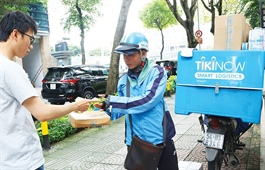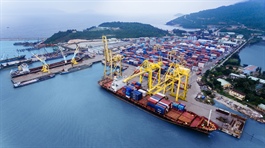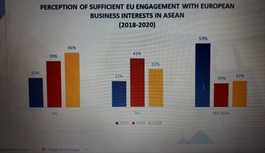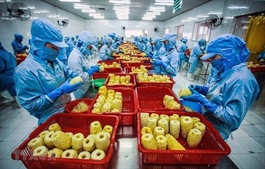Equitisation doesn't necessarily mean a better future for SOEs
Equitisation doesn't necessarily mean a better future for SOEs
Equitisation should be a magic wand to improve the performance of a State-owned enterprise (SOE), but in some cases, it is not. 
Viet Nam Southern Food Corporation (Vinafood 2) in mid-March 2018 launched its IPO and sold 115 million shares, accounting for nearly 23 per cent of its capital, to bidders for VND1.16 trillion (roughly US$50 million).
After the IPO, multisectoral firm T&T Group bought 25 per cent of the firm and became the strategic investor at Vinafood 2 for about VND1.2 trillion.
The total fundraising was worth nearly VND2.3 trillion and the State cut its ownership in Vinafood 2 to 51.43 per cent from 100 per cent.
Vinafood 2 expected the equitisation would help turn its losses into profits but to date, the opposite has happened.
The food trading company in the second quarter of 2020 recorded a loss of VND43 billion. After six months, Vinafood 2 made a total loss of VND160 billion.
The company has logged an accumulative loss of nearly VND2.2 trillion.
Changes in rice purchasing policies in foreign markets, stricter barriers to protect local producers, and the temporary halt of rice exports due to the COVID-19 pandemic have led the poor performance, according to Vinafood 2.
According to analysts and business insiders, the prolonged underperformance of the firm is caused by a lack of efficient corporate governance.
The State investor still has the controlling stake in the company while the strategic investor has little power, so the company has shown little change in its corporate governance and business policies.
If there is no change to the management structure at Vinafood 2, the company may risk losing both the State and shareholders’ assets, analysts warned.
In an extraordinary shareholders’ meeting in March 2020, T&T Group representative Do Ngoc Khanh suggested Vinafood 2 should make a specific business plan to stop making losses in 2020-21 and begin earning profits in 2021-22.
But as T&T Group has only a 25 per cent stake in Vinafood 2, its voice is not strong enough to change the company’s structure.
Another case is construction firm Song Hong Joint Stock Corporation, which is managed by the Ministry of Construction. The company was equitised in 2010 but its performance in recent years has worsened.
In 2019, Song Hong made a loss of nearly VND67 billion, raising cumulative losses to VND958 billion. The owner’s equity capital at the end of 2019 was negative VND651 billion.
If the State still controls a company, it becomes very hard for the strategic investor to make changes to the business operation, governance and performance, analysts said.
The issue would harm the business, its shareholders and even Viet Nam’s economy as Vinafood 2, like other large-cap SOEs, is the leader in the rice business, so if the company fails to make a profit, the nation and people would suffer, they said.
“Companies must be taken care of before and after equitisation, because they are the ones that keep the country alive,” T&T Group chairman Do Quang Hien told Dau tu Chung khoan (Securities Investment) newspaper.
“I’m not talking about money, which is easily raised. What we need is regulatory support. The State should give up its control in sectors which are not concerns in terms of national security because it the State still holds more than 50 per cent of capital, we cannot change the mindset in corporate governance,” he said.
The Ministry of Planning and Investment said in its project on improving corporate governance for SOEs that State representatives are often unaware of the need to protect the rights and benefits of smaller shareholders.
The ministry said SOE equitisation plans often lag behind schedule because there are too many issues regarding the valuation of land properties, assets and debts.
Those issues put State representatives under pressure to both earn profits when selling State capital and follow the rules to avoid legal violations, the ministry said.
“Some business top managers worry they may lose power and benefits if the company is shared with investors, so they are unwilling to comply with the divestment plan,” the ministry said.
“However, the penalties on those individuals and their actions are not strong enough, leading to slow and inefficient equitisation of SOEs,” the ministry added.
The ministry recommended the State keep control of companies in the fields of cash printing, savings insurance, social development banking, securities depository and book publishing while giving up its power in other sectors.
Economist Ngo Tri Long, former director of the Market and Price Research Institute, said the prolonging issue will result in bigger losses for SOEs.
Slow equitisation will halt business operation and unsettle staff, thus, downsizing the production and productivity, Long said, adding the worst-hit are the State and thousands of workers in those companies.


























